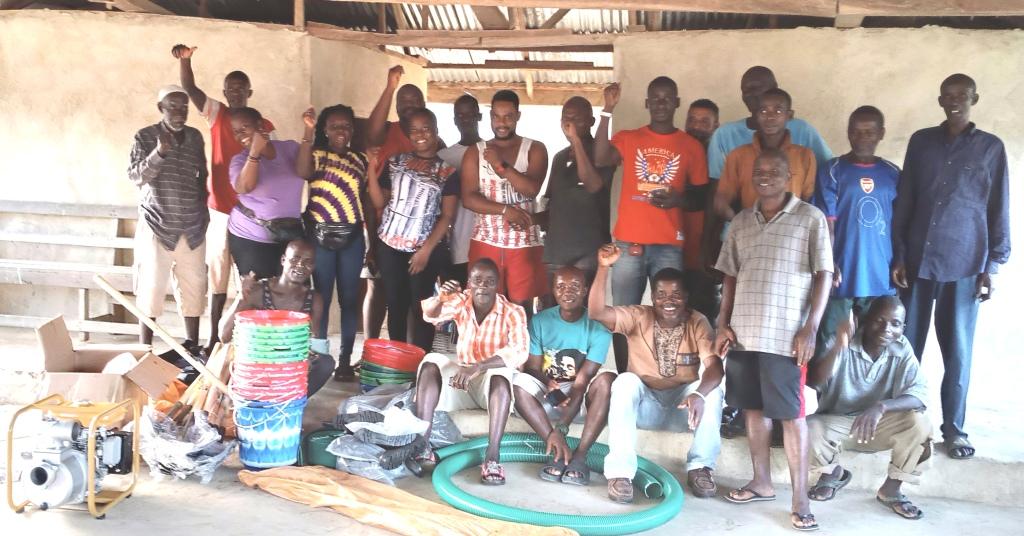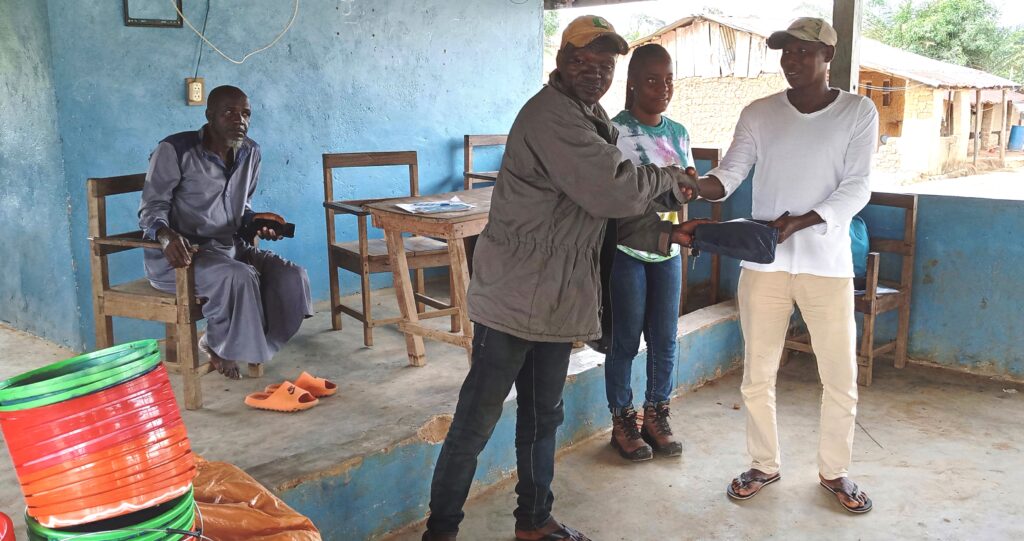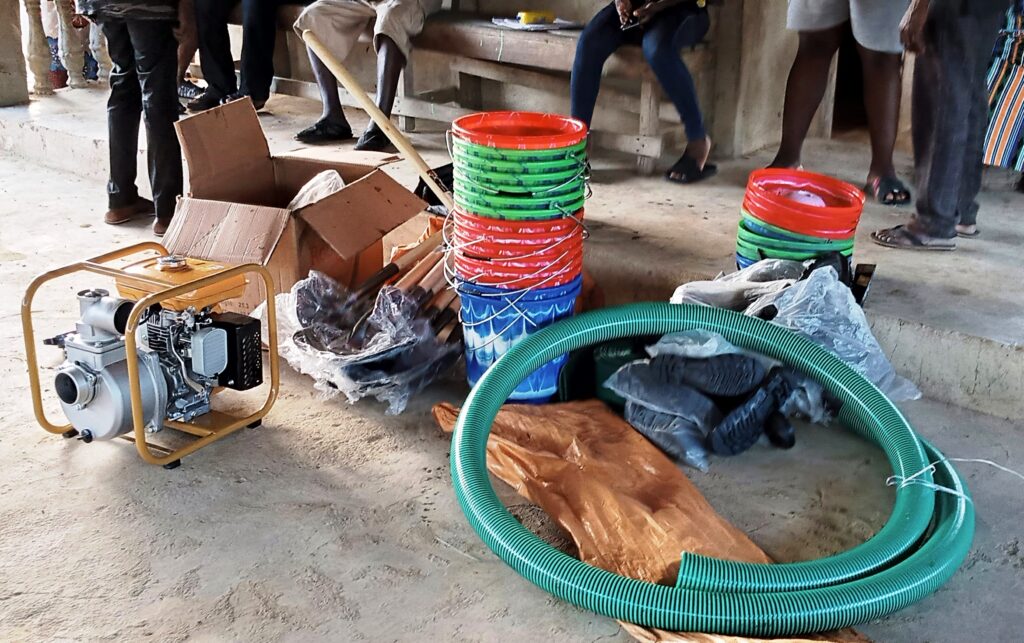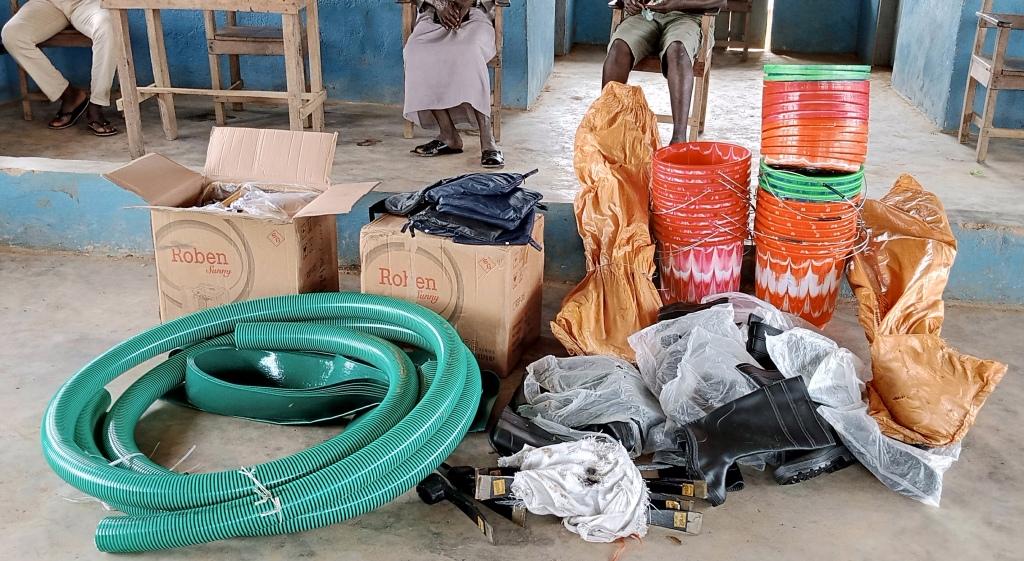SCNL And Partners Hold Talks On Long-Term Vision On The Upper Guinean Forest
Compiling ideas for the upkeep of West Africa’s Forest
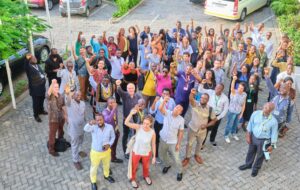
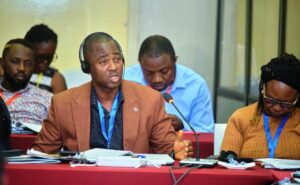
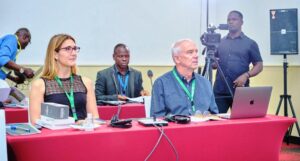
It was an interactive, and fruitful workshop when the Society for the Conservation of Nature of Liberia (SCNL), with support from the Critical Ecosystem Partnership Fund (CEPF), joined other partners in Accra, Ghana to discuss the long-term vision for the rich Guinean Forest. From June 6-9, 2022, over 80 delegates from Civil Society Organizations (CSOs), implementing various conservation programs in the Guinean Forests of West Africa biodiversity hotspot, Guinea Forest of West Africa (GFWA), met and discussed the final assessment workshop to showcase the impacts of six-year investments by CEPF. The delegates participated in group presentations, experience sharing, and lessons learned sections.
SCNL CEPF Project Coordinator, Richard Hoff II, presenting on behalf of the organization expressed thanks and appreciation to CEPF for supporting SCNL over the past five years on sustainawble food production while conserving biodiversity. The support of CEPF he further, has provided omen the opportunity to read and write thus reducing the level of illiteracy in forest fringe communities supported by SCNL. At the same time, CEPF’s contribution to farmers through the swamp rice production, and the harvesting of honey and beans production contributed greatly to the survivability of people in those communities supported by the CEPF project.
Speaking earlier, CEPF’s Executive Director, Mr. Olivier Langrand, thanked grantees for what they are doing to conserve biodiversity. “The appreciation and thanks have often gone to the funders for making the grants available, but I think it is time to redirect our thanks to the grantees because, without them, our work will have no meaning,” Langrand said.
The executive director further said despite the GFWA being one of the 36 globally recognized biodiversity hotspots in the world, it is suffering from immense pressure. “There is a lot of pressure on the resources, be it forest resources, coastal resources, or wetlands resources. That is why we are here in the Guinean Forest hotspots to make sure we provide the means to Civil Society Organizations to reduce the impact on biodiversity and make sure conservation is achieved”.
From 2016 to 2022, the international funding programme of six major partners, including but not limited to the World Bank and the European Union, has invested 10.1 million USD through 78 grants to 62 organizations. Projects supported were geared towards four strategic directions notably empowering communities to better manage priority key biodiversity areas, mainstreaming biodiversity into public policies, improving conservation actions for endangered species, and building institutional and communication capacities of CSOs.
This is what Peggy Poncelet, CEPF’s Grant Director believes has paid off. “Our action resulted in more than 1,000 globally protected species being supported, the establishment of 16.2 million hectares of protected area amongst others, ” Poncelet said. ‘Local communities should be at the forefront of conservation” Speaking at the workshop Jean-Baptiste Deffontaines, West Africa Sub-Regional Office Head for Birdlife International, reiterated why local communities need to be at the forefront of conservation.
“At Birdlife we strongly believe local people working for nature in their own places produces the best results. What they need is empowerment to do so, “Jean-Baptist highlighted.
“This project was an opportunity for us to mark our first steps in the field of conservation with an approach focused on improving the governance of protected areas, in particular through better transparency and an effective participatory approach. We were able, in about 18 months to obtain the consent and commitment of populations and elites for the protection of biodiversity,” Justin Kamga, Coordinator of a Cameroon-based NGO explained.
Speaking at the three-day event in Ghana jointly organized by Global Initiative for Food Security and Ecosystem Preservation, GIFSEP, and Tropical Biology Association with the support of Birdlife Africa, Mohamed Imam Bakarr, Lead Environment Specialist at the Global Environment Facility, GEF insisted on the need for robust action against climate change. “We need to step up our game because the effects of climate change will be very bad for the GFWA. Governments in respective countries need to allocate more budget to address conservation issues”.
At the closing of the workshop, CEPF Director hinted that even though this phase of funding has come to an end, there is a possibility for a comeback as the group continues to source funds for a 15-year plan of action.
SCNL Through CEPF Supports Artisanal And Small-Scale Miners In Northern Liberia
Encouraging safe mining, while protecting the forest
It was a scene of jubilation and huge excitement when several Artisanal and Small-Scale Miners gathered at Kongbor and Camp Alpha, Gbarpolu County respectively to receive mining equipment from the Society for the Conservation of Nature of Liberia (SCNL). With support from the Critical Ecosystem Partnership Fund (CEPF), mining equipment provided to the miners included a water pump, raincoats, rain boots, shovels, rog, buckets, and diggers. The donation to Artisanal and Small-Scale miners is an additional effort from SCNL, through its partner to encourage these miners to mine smartly, while preserving the forest.
Isatu Johnson, Chairlady, Camp Alpha, and Musa A. Kamara, Town Chief, Kongbor welcomed SCNL’s staff, and also extended appreciation to the non-profit organization for the huge support not only to miners but the communities.
In Kongbor and Camp Alpha, Fiona Malley, Project Assistant, SCNL, told the miners that SCNL’s support was a kind gesture aimed at encouraging legal miners to keep mining responsibly.
“Today, SCNL is here to support Artisanal and Small-Scale Miners. SCNL through its partner, CEPF donates these mining tools to you, the (miners) and encourages beneficiaries not just to mine, but to practice what is called, “Dig a hole, and cover hole”.
Malley then advised the miners not to engage in activities that will cause damage to the soil and its future use. “As you all know, the forest is serving as the home for biodiversity, it gives oxygen and absorbs car dioxide. So, it is important the forest is preserved…SCNL’s interest is forest preservation, that is why the organization is encouraging smart mining and reclamation of land”.
Mulbah Kelleh, Chairman for Mining, Kongbor, and Issa Dumuya, Chairman for Mining, Camp Alpha, highly appreciated SCNL and partner for the donation. Particularly, Kelleh said, “We’re happy with the support from SCNL, we will continue to mine safely for the protection of the forest. We have had meetings with SCNL, but this is the first time to receive this help from them, so thank you for what you have done, and by the grace of God, miners will keep mining smartly”.
J. Alex Musa, Secretary, CFMB, Tonglay Clan, and Alfred Jabateh, Executive Committee for Tonglay Forest, also appreciated SCNL. “CFMB and SCNL are working together, this donation isn’t strange to us, because SCNL has been doing a lot for the communities. SCNL has provided loans for marketers, provided financial and material assistance to students, trained several farmers, and provided livelihood alternatives to forest community dwellers today, SCNL has put smiles on the faces of the miners, and we hope this assistance will continue so [our communities] can keep developing,” Musa said.
SCNL Through CEPF Supports Artisanal And Small-Scale Miners In Northern Liberia
